With the never-ending revolutions of data-driven approaches that started already more than a decade ago, it is surprising at first that the pace of ML discoveries in medicine seems substantially slower than the ones found in consumer applications such as ChatGPT. The answer to that paradox is relatively simple: in healthcare, data is hard to access as it is expensive and siloed in medical institutions and thus data-hungry methods trained on only one center on limited data often fail to generalize to another. In order to break those silos while protecting patient data and thus enabling new medical discoveries via ML, federated learning (FL) is a promising approach. However, in practice, applying FL in real-life contexts presents numerous challenges. This talk will use some of the FL research projects that Owkin has spearheaded in order to illustrate the realities of FL in healthcare and discuss the remaining milestones on the road to FL technologies and ML becoming the new engine of medicine research.

Special Seminar: Anshul Kundaje, PhD – “Using deep learning models to debug regulatory genomics experiments and decode cis-regulatory syntax”
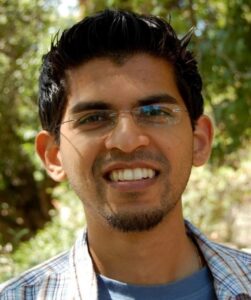 BWH Computational Pathology Special Seminar
BWH Computational Pathology Special Seminar
Title: Using deep learning models to debug regulatory genomics experiments and decode cis-regulatory syntax
Speaker: Anshul Kundaje, PhD
Affiliation: Stanford University
Position: Associate Professor, Genetics and Computer Science
Date: Monday April 22, 2024
Time: 4:00PM-5:00PM ET
Zoom: https://partners.zoom.us/j/82163676866
Meeting ID: 821 6367 6866
Anshul Kundaje, PhD, is Associate Professor of Genetics and Computer Science at Stanford University. His primary research area is large-scale computational regulatory genomics. The Kundaje lab develops deep learning models of gene regulation and model interpretation methods to decipher non-coding DNA and genetic variation associated with disease. Dr. Kundaje has led computational efforts to develop widely used resources in collaboration with several NIH consortia including ENCODE, Roadmap Epigenomics and IGVF. Dr. Kundaje is a recipient of the 2016 NIH Director’s New Innovator Award and the 2014 Alfred Sloan Fellowship.
Links: The Encyclopedia of DNA Elements (ENCODE) Project, Stanford University, MIT

March ABC Seminar: Andrew H. Song – Brigham and Women’s Hospital – “Towards 3D pathology – The opportunities and challenges”
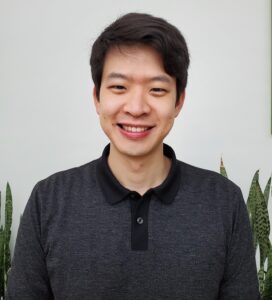 Human tissue, which is inherently three-dimensional (3D), is traditionally examined through standard-of-care histopathology as limited two-dimensional (2D) cross sections that can poorly represent the tissue due to sampling bias. To holistically characterize 3D histomorphology, 3D imaging modalities have been developed, but clinical translation is hampered by the complex and time-consuming requirements for manual evaluation, as well as the current lack of computational platforms to distill clinical insights from these large, high-resolution datasets. We present a deep learning model for processing tissue volumes and predicting patient outcomes with weak supervision. Recurrence risk-stratification models were trained with archived prostate cancer specimens imaged with open-top light-sheet microscopy or microcomputed tomography. By comprehensively capturing 3D morphologies, 3D block-based prognostication achieves superior performance to traditional 2D slice-based approaches, including existing clinical/histopathological baselines. Incorporating larger tissue volumes is shown to improve prognostic accuracy. This framework offers a promising direction for clinical decision support and 3D biomarker discovery, with the potential to further catalyze the growth of 3D spatial biology techniques for clinical applications.
Human tissue, which is inherently three-dimensional (3D), is traditionally examined through standard-of-care histopathology as limited two-dimensional (2D) cross sections that can poorly represent the tissue due to sampling bias. To holistically characterize 3D histomorphology, 3D imaging modalities have been developed, but clinical translation is hampered by the complex and time-consuming requirements for manual evaluation, as well as the current lack of computational platforms to distill clinical insights from these large, high-resolution datasets. We present a deep learning model for processing tissue volumes and predicting patient outcomes with weak supervision. Recurrence risk-stratification models were trained with archived prostate cancer specimens imaged with open-top light-sheet microscopy or microcomputed tomography. By comprehensively capturing 3D morphologies, 3D block-based prognostication achieves superior performance to traditional 2D slice-based approaches, including existing clinical/histopathological baselines. Incorporating larger tissue volumes is shown to improve prognostic accuracy. This framework offers a promising direction for clinical decision support and 3D biomarker discovery, with the potential to further catalyze the growth of 3D spatial biology techniques for clinical applications.
Publication: Song AH et al., “Weakly supervised AI for efficient analysis of 3D pathology samples”, Cell (2024, In Press) Preprint
Speaker: Andrew H. Song, PhD
Affiliation: Brigham and Women’s Hospital, Harvard Medical School
Position: Research Fellow
Date: Monday, March 25, 2024
Time: 4:00PM-5:00PM ET
Zoom: https://partners.zoom.us/j/82163676866
Meeting ID: 821 6367 6866
In Person: VTC-2006b, Hale BTM 2nd Floor
Brigham and Women’s Hospital
60 Fenwood Rd, Boston 02115
Andrew is currently a postdoctoral research fellow at Brigham and Women’s Hospital and Harvard Medical School, working with Prof. Faisal Mahmood in the AI4Pathology group since early 2022. His current research focus is developing DL-based frameworks for 3D computational pathology, using images from diverse 3D imaging modalities. In his previous life, he received a Ph.D. from Massachusetts Institute of Technology (MIT) Electrical Engineering and Computer Science (EECS), co-advised by Prof. Emery N. Brown (MIT) and Prof. Demba Ba (Harvard), working at the intersection of computational neuroscience and statistical signal processing.

February ABC Seminar: Vitalii Kleshchevnikov, PhD – Wellcome Sanger Institute – “Probabilistic models to resolve cell identity and tissue architecture”
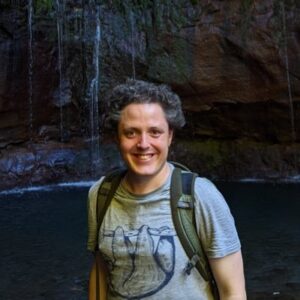 Cell identity drives cell-cell communication and tissue architecture and is in return regulated by cell-extrinsic cues. Cell identity is determined by the combination of intrinsic developmentally established transcription factor use (TF) and constitutive as well as cell communication-dependent TF activities. Presented work shows two probabilistic models that we developed to advance the understanding of these processes using single-cell and spatial genomic data.
Cell identity drives cell-cell communication and tissue architecture and is in return regulated by cell-extrinsic cues. Cell identity is determined by the combination of intrinsic developmentally established transcription factor use (TF) and constitutive as well as cell communication-dependent TF activities. Presented work shows two probabilistic models that we developed to advance the understanding of these processes using single-cell and spatial genomic data.
Spatial transcriptomic technologies promise to resolve cellular wiring diagrams of tissues in health and disease, but comprehensive mapping of cell types in situ remains a challenge. Here we present cell2location, a Bayesian model that can resolve fine-grained cell types in spatial transcriptomic data and create comprehensive cellular maps of diverse tissues. Cell2location accounts for technical sources of variation and borrows statistical strength across locations, thereby enabling the integration of single cell and spatial transcriptomics with higher sensitivity and resolution than existing tools. We assess cell2location in three different tissues and demonstrate improved mapping of fine-grained cell types. In the mouse brain, we discover fine regional astrocyte subtypes across the thalamus and hypothalamus. In the human lymph node, we spatially map a rare pre-germinal center B cell population. In the human gut, we resolve fine immune cell populations in lymphoid follicles. Collectively our results present cell2location as a versatile analysis tool for mapping tissue architectures in a comprehensive manner.
Python package is provided here: https://github.com/BayraktarLab/cell2location.
Cell identity and plasticity is regulated by a combinatorial code mediated by transcription factors and the cell communication environment. Systematically dissecting how the regulatory code robustly defines the vast complexity of cell populations across tissues is a long-standing challenge. Measured using the assay for transposase-accessible chromatin with sequencing (ATAC-seq), DNA accessibility provides a readout of intermediate gene regulation steps at single-cell resolution, with technologies measuring both RNA and ATAC providing the necessary evidence to build mechanistic models of regulation. Existing methods address one or several subproblems of modelling DNA accessibility. For example, the DNA sequence-based deep learning models represent combinatorial interactions and in-vivo TF-DNA recognition preferences. In contrast, GRN models use TF abundance profiles across cells and in-vitro-derived TF-DNA recognition preferences, optionally incorporating ATAC-seq data as a filter. All models learn cell-type specific weights and properties and don’t generalize to new TF abundance states such as new cell types. Therefore, we are missing an end-to-end mechanistic model that represents all steps of the biological process, that generalizes to both new DNA sequences and TF abundance combinations and can simultaneously characterize hundreds to thousands of cell states observed in single-cell genomics atlases. Here, we formulated cell2state, a mechanistic end-to-end probabilistic model of TF recruitment to a chromatin locus and downstream TF effect on DNA accessibility. Cell2state is designed to achieve the generalization of regulatory predictions to unseen cell types. Cell2state A) estimates TF nuclear protein abundance and models B) how TFs recognize DNA, C) how TF sites in DNA lead to TF recruitment to a chromatin locus, D) how the activity of DNA-associated TFs affects chromatin accessibility. To evaluate generalization, we defined the computational problem and developed a workflow for predicting the scATAC-seq readout for previously unseen chromosomes and cell types. We show that cell2state outperforms the state-of-the-art deep learning models (ChromDragoNN) at explaining DNA accessibility differences across cells. Finally, to look at cell state plasticity, we developed ways to use cell2state to simulate the possible chromatin states given TF abundance of source cell types.
Speaker: Vitalii Kleshchevnikov, PhD
Affiliation: Wellcome Sanger Institute
Position: Bioinformatician @ Bayraktar, Stegle, Teichmann group
Host: Daniel MacDonald, Gibson Lab
Date: Monday February 26, 2024
Time: 10:00AM-11:00AM ET
Zoom: https://partners.zoom.us/j/82163676866
Meeting ID: 821 6367 6866
Vitalii Kleshchevnikov is driven by a deep interest in three key areas: i) understanding the regulatory code which allows a single genome to specify the full diversity of cell populations and their interaction, ii) formalizing the biology of these processes into mechanistic AI/ML models, and iii) accelerating the therapy development to address ageing alterations in these processes. Vitalii did his PhD jointly supervised by Dr Omer Bayraktar, Dr Oliver Stegle, Dr Sarah Teichmann at Wellcome Sanger Institute (2018-2023) and will present the published and ongoing work. Prior to PhD, Vitalii worked on the role of peptide motifs (SLiMs) in intracellular signaling (Dr Evangelia Petsalaki, EMBL-EBI), predicting CRISR KO mutational outcomes (Dr Leopold Parts, Wellcome Sanger Institute) and profiling protein interactions in accelerated ageing (A*STAR) – while completing MSc and BSc in Kyiv, Ukraine.

January ABC Seminar: Efrat Muller – Tel Aviv University – “Methods for integrating metagenomics and metabolomics data”
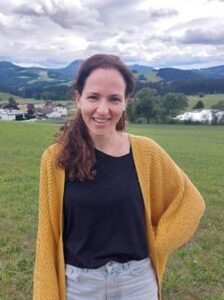 The human gut microbiome, and its metabolic activity in particular, have been implicated in a wide range of disease states, including metabolic disorders, inflammatory bowel diseases, and colorectal cancer. This growing appreciation for the impact of the gut microbiome’s metabolism on human health has given rise to studies that generate both microbiome and metabolome high-throughput data from human gut microbiome samples. Truly integrated analysis of both omic datasets, however, remains a challenging task. My research aims to develop new frameworks for analyzing and integrating these datasets using a combination of machine learning, metabolic modeling, and network analysis. I’ll specifically present two projects: the first evaluates the robustness of microbiome-metabolome associations using machine learning and meta-analysis models; the second aims to identify “multi-omic modules” that capture both cross-omic associations and associations with disease simultaneously. Taken together, these frameworks can enhance our understanding of microbiome-metabolome connections and equip the microbiome research community with novel methods for such integrated data analysis.
The human gut microbiome, and its metabolic activity in particular, have been implicated in a wide range of disease states, including metabolic disorders, inflammatory bowel diseases, and colorectal cancer. This growing appreciation for the impact of the gut microbiome’s metabolism on human health has given rise to studies that generate both microbiome and metabolome high-throughput data from human gut microbiome samples. Truly integrated analysis of both omic datasets, however, remains a challenging task. My research aims to develop new frameworks for analyzing and integrating these datasets using a combination of machine learning, metabolic modeling, and network analysis. I’ll specifically present two projects: the first evaluates the robustness of microbiome-metabolome associations using machine learning and meta-analysis models; the second aims to identify “multi-omic modules” that capture both cross-omic associations and associations with disease simultaneously. Taken together, these frameworks can enhance our understanding of microbiome-metabolome connections and equip the microbiome research community with novel methods for such integrated data analysis.
Speaker: Efrat Muller
Affiliation: Prof. Elhanan Borenstein Lab, Tel Aviv University
Position: Doctoral Candidate
Hosted by: Jennifer Dawkins, Gerber Lab
Date: Monday January 22, 2024
Time: 10:00AM-11:00AM ET
Zoom: https://partners.zoom.us/j/82163676866
Meeting ID: 821 6367 6866
Links:
Google Scholar
Linkedin
Efrat Muller is a Computer Science PhD student studying computational methods for human microbiome research, under the supervision of Professor Elhanan Borenstein at Tel Aviv University. Prior to her PhD, she worked in product management and data analysis positions at Medial EarlySign(a startup in the digital health industry) and at Intel Corporation’s Big Data and Machine Learning group. Efrat completed a B.Sc. and M.Sc. in computer science with honors from Ben-Gurion University. She is generally enthusiastic about any intersection of computer science, machine learning, healthcare and well-being.
Efrat received the EMEA Google Generation Scholarship (2022), Edmond J. Safra Center Excellent Research Student Prize (2022), Naamat scholarship for female PhD students (2022), and prizes for excellence in teaching (Discrete Math course for CS students, 2019-2021).

December ABC Seminar: Miriam Adler, PhD – Hebrew University
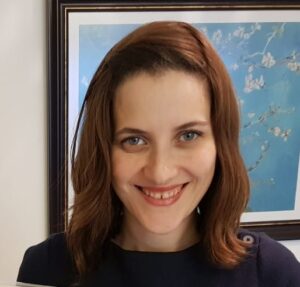 Fibrosis is a pathology of excessive scarring which causes morbidity and mortality worldwide. Fibrosis is a complex process involving thousands of factors, therefore, to better understand fibrosis and develop new therapeutic approaches, it is necessary to simplify and clarify the underlying concepts. In this talk, I will introduce a mathematical model we recently developed for a cell circuit between myofibroblasts and macrophages – the two cell types that produce and remodel the scar. The mathematical framework predicts two types of fibrosis – hot fibrosis with abundant macrophages and myofibroblasts, and cold fibrosis dominated by myofibroblasts alone. Moreover, we use the model to predict that the autocrine signal for myofibroblast division is a potential therapeutic target to reduce fibrosis. Finally, I will discuss how we use myocardial infarction (MI), a widely studied in-vivo injury model for cardiac fibrosis, to test these theoretical concepts and intervention strategies experimentally.
Fibrosis is a pathology of excessive scarring which causes morbidity and mortality worldwide. Fibrosis is a complex process involving thousands of factors, therefore, to better understand fibrosis and develop new therapeutic approaches, it is necessary to simplify and clarify the underlying concepts. In this talk, I will introduce a mathematical model we recently developed for a cell circuit between myofibroblasts and macrophages – the two cell types that produce and remodel the scar. The mathematical framework predicts two types of fibrosis – hot fibrosis with abundant macrophages and myofibroblasts, and cold fibrosis dominated by myofibroblasts alone. Moreover, we use the model to predict that the autocrine signal for myofibroblast division is a potential therapeutic target to reduce fibrosis. Finally, I will discuss how we use myocardial infarction (MI), a widely studied in-vivo injury model for cardiac fibrosis, to test these theoretical concepts and intervention strategies experimentally.
Speaker: Miriam Adler, PhD
Speaker Affiliation: Alexander Silberman Institute of Life Sciences and the Faculty of Medicine, Hebrew University of Jerusalem
Speaker Position: Senior Lecturer
Date: Monday December 18, 2023
Time: 10:00am-11:00am ET **New Time**
Zoom: https://partners.zoom.us/j/82163676866
Meeting ID: 821 6367 6866
Hosted by: Utkarsh Sharma, PhD, Gibson Lab
Research Links: https://adlermiri.wixsite.com/mysite
Google Scholar
Miri Adler completed a BSc in Physics at the Technion and obtained an MSc and a PhD in Physics at the Weizmann Institute with Prof. Uri Alon, studying design principles of biological circuits. In her postdoctoral research working jointly with Prof. Ruslan Medzhitov at Yale University and Prof. Aviv Regev at the Broad Institute of MIT and Harvard, Miri developed theoretical frameworks to uncover universal principles of the collective behavior of cells at the tissue level. Miri received a Fulbright scholarship, EMBO postdoctoral scholarship, Zuckerman STEM leadership program fellowship, and the Israel National Postdoctoral Award Program for Advancing Women in Science. Currently she is an associate research scientist at the Tananbaum Center for Theoretical and Analytical Human Biology at Yale University. As of December, she will be a senior lecturer at the Alexander Silberman Institute of Life Sciences and the Faculty of Medicine at the Hebrew University of Jerusalem.
Click here to be added to our mail list.

November ABC Seminar: Gennady Gorin, PhD – CalTech
Stochastic foundations for single-cell RNA sequencing
Single-cell RNA sequencing, which quantifies cell transcriptomes, has seen widespread adoption, accompanied by a proliferation of analytic methods. However, there has been relatively little systematic investigation of its best practices and their underlying assumptions, leading to challenges and discrepancies in analysis. I motivate a set of generic, principled strategies for modeling the biological and technical stochasticity in sequencing experiments, and use case studies to illustrate their prospects for the discovery and interpretation of biophysical kinetics.
Research links:
- Gennady Gorin: https://gennadygorin.github.io/
- Pachter lab: http://pachterlab.github.io/
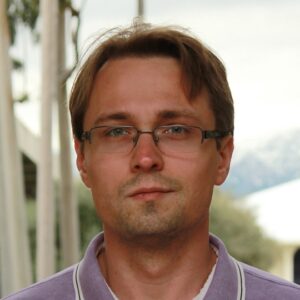
Dr. Gennady Gorin is a chemical engineer working at the exciting intersection of bioinformatics, stochastic biophysics, and statistics. He completed his Ph.D. with Lior Pachter at the California Institute of Technology, adapting theory from fluorescence transcriptomics to the unique features of single-cell RNA sequencing. Prior, he completed a B.S./B.A. at Rice University and performed transcriptional modeling research in the Golding laboratory at Baylor College of Medicine. Gennady is transitioning to industrial bioinformatics, and excited about the prospects for rigorous, physics-informed methods in method development.
All Welcome! Note this event will take place on Zoom.
Date: Monday November 20, 2023
Time: 4:00-5:00PM
Click here to be added to our mail list.
For further information about this seminar series, contact tarnoldmages@bwh.harvard.edu

October ABC Seminar: Weiruo Zhang, PhD, Stanford University
Spatial biology is a new frontier that has become accessible through advances in spatial profiling technologies, such as multiplexed in situ imaging spatial proteomics, which can provide single-cell resolution up to 60 markers. In this talk, I will introduce a computational analysis pipeline that performs integrative analysis of spatial proteomics and single-cell RNA sequencing to identify clinically-relevant cellular interactions. The pipeline features (1) CELESTA, an unsupervised machine learning method for cell type identification in multiplexed spatial proteomics data; (2) a geospatial statistical method to identify cell-cell colocalizations; and (3) an integrative coupling of spatial proteomics and single-cell RNA sequencing data that identified cell-cell crosstalk associated with lymph node metastasis in head and neck cancer which we have validated through mouse model studies.
Research link:
https://profiles.stanford.edu/weiruo-zhang
Dr. Zhang is currently a Research Engineer at the Department of Biomedical Data Science and the Center for Cancer Systems Biology, Stanford School of Medicine. Dr. Zhang received her M.S. and Ph.D. in Electrical Engineering, both from Stanford University, with a focus on bioinformatics and developing computational algorithms for metabolomics data analysis. Her current research at Stanford primarily focuses on developing and implementing computational methods to integrate and analyze single-cell and spatial multi-omics data, such as single-cell RNA sequencing, spatial proteomics and spatial transcriptomics. Her research aims to apply quantitative approaches that bridge multi-omics, imaging, machine learning, and artificial intelligence to decipher biology for cancer progression and guide treatment responses.

Mar. 27, 2023: Uthsav Chitra, Princeton University

Title for the talk
Abstract to be provided
Short Bio
Affiliation/Credentials
Research Links
Zoom Link to be provided
Jan. 30, 2023: Lambda Moses, California Institute of Technology
“From geospatial to spatial -omics with SpatialFeatureExperiment and Voyager”; https://partners.zoom.us/j/82826415806; To bring more of the geospatial tradition to spatial -omics, we developed SpatialFeatureExperiment (SFE), which extends the existing Bioconductor data structures SingleCellExperiment (SCE) and SpatialExperiment (SPE) with Simple Features to represent the geometries of Visium spots and cell segmentation and perform geometric operations. We developed the Voyager package that performs exploratory spatial data analysis (ESDA) on SFE objects.